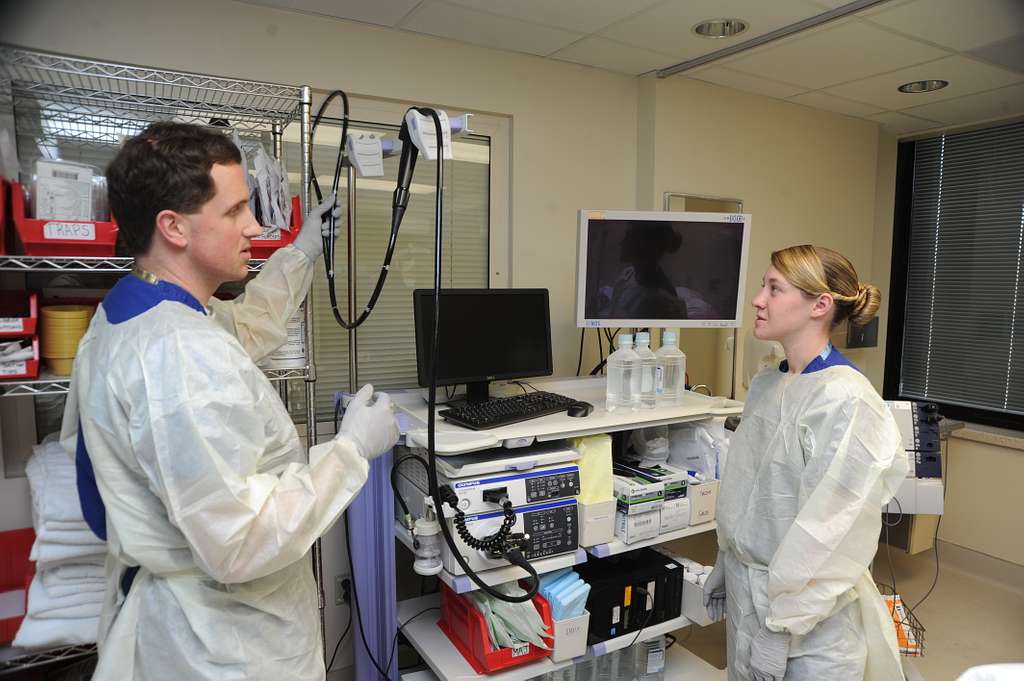
Choosing the right gastroenterologist is key for effectively diagnosing and managing digestive health issues. From chronic conditions like IBS to routine screenings such as colonoscopies, a skilled gastroenterologist can provide targeted care and long-term support. Here are practical tips to help you find a specialist who meets your medical needs:
Seek Referrals
Obtaining referrals from trusted sources provides a strong foundation for finding a qualified gastrointestinal specialist. Your primary care physician often knows reputable gastroenterologists in your area and understands your medical history. They offer valuable insights into which gut health doctor may be the best fit for your specific condition.
Family members and friends who have received gastroenterology care can also provide helpful recommendations. Their firsthand experiences offer practical insights into a doctor’s approach, office environment, and treatment effectiveness. Medical professionals, such as nurses or other specialists, may also recommend a gastroenterologist they respect and work with regularly.
Online physician directories and medical association websites list board-certified specialists in your area. These resources provide basic information about doctors’ credentials, locations, and specialties. While these directories don’t replace personal recommendations, they help you verify information and discover further options.
Check Credentials
Verifying a gastroenterologist’s credentials helps you make sure they have the proper training and qualifications. Medical school education and residency training provide the foundation for a doctor’s expertise. Most gastroenterologists complete four years of medical school, three years of internal medicine residency, and three years of gastroenterology fellowship training. This extensive education prepares them to handle complex digestive health issues.
State medical licensing boards maintain records of any disciplinary actions or malpractice claims against physicians. These public records help you identify any red flags in a doctor’s professional history. Hospital affiliations also indicate the quality of care, as reputable hospitals maintain high standards for their medical staff.
Evaluate Communication Style
A gastroenterologist’s communication style significantly impacts your comfort level and treatment outcomes. The right digestive health specialist listens carefully to your concerns, explains conditions in terms you understand, and answers questions thoroughly. They should make you feel comfortable discussing sensitive digestive issues without judgment.
During your initial consultation, pay attention to how the doctor interacts with you. They should provide adequate time for your appointment rather than rushing through the visit. A good GI doctor explains test results clearly, discusses treatment options in detail, and involves you in decision-making about your care.
Assess Experience and Read Patient Reviews
Experience with your specific digestive condition is valuable when selecting a gastroenterologist. Some GI doctors specialize in certain areas such as inflammatory bowel disease, liver conditions, or endoscopic procedures. A specialist with extensive experience treating your particular condition often provides effective care and better outcomes.
Patient reviews offer insights into real experiences with a gastroenterologist’s care. Online review platforms, hospital websites, and medical practice websites often feature patient testimonials. Look for patterns in reviews rather than focusing on individual comments, as this provides a balanced perspective.
Consult a Gastroenterologist Today
Finding the right gastroenterologist requires careful evaluation of referrals, credentials, communication style, and experience. Take time to research potential doctors, schedule consultations, and ask relevant questions about their approach to your care. The right digestive health specialist will provide comprehensive evaluation, effective treatment, and ongoing support for your gastrointestinal health needs. Contact a qualified gastroenterologist in your area and schedule a consultation to address your digestive health concerns and develop an appropriate treatment plan.




